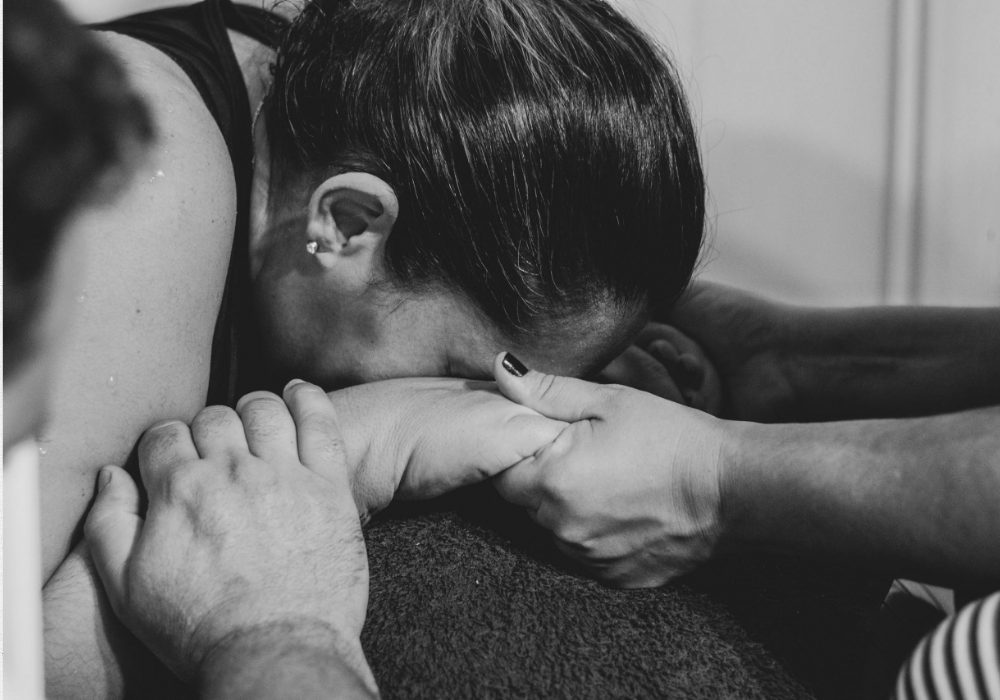There’s nothing noble about running on empty.

Helping, showing up, holding it all together—it’s second nature by now. Strength like that doesn’t just appear. It’s been built over years of being the reliable one, the problem-solver, the person who always figures it out. But somewhere along the way, that care started costing more than it gave back. And no one really teaches how to recognize that tipping point until it’s already behind you.
Exhaustion has layers. There’s the kind that sleep fixes, and then there’s the kind that starts to wear down your joy, your boundaries, your voice. The signs are subtle at first. They look like doing “just one more thing” when there’s nothing left to give. They sound like “I’m fine” said on autopilot. And they show up in bodies and minds that have been quietly stretched thin for too long. This isn’t failure. It’s just what happens when tending to everything else becomes the only setting left.
1. The body keeps whispering louder every time it’s ignored.

Aches, tension, fatigue, nausea that hits out of nowhere—none of it is random. Bodies speak in signals long before they scream. According to the Cleveland Clinic, physical symptoms of stress may include aches and pains, chest pain, exhaustion, headaches, dizziness, and gastrointestinal issues. But when caring for others is the default, noticing those signs can feel like a luxury. It’s easier to call them “just stress” or “a bad week” than to pause and actually listen.
Eventually, the body starts insisting. What was once a whisper becomes a roar. Rest stops being optional and turns into the only option. This isn’t weakness—it’s wisdom. Honoring those early signals is a way to stay ahead of the crash, not behind it. Because the longer discomfort is ignored, the more it starts to speak in pain.
2. Desires keep getting buried beneath other people’s needs.

The things that once brought joy start collecting dust—paintbrushes, playlists, unread books, afternoon walks. At first, they’re postponed for good reasons. Someone needed help. A deadline got tight. But slowly, those things stop getting rescheduled. They just vanish. And when space finally opens up, there’s nothing left on the list that’s actually for you. As research by Yuta Takiguchi for the National Library of Medicine explains, postponing these activities for work or caregiving can lead to their eventual disappearance from daily routines, which impacts mental well-being.
Desire doesn’t have to be loud to be real. It can show up as a quiet longing, a what-if, a flicker of “remember when.” Reconnecting to it doesn’t require a big, bold leap. It might just mean making a little space and letting something—anything—feel like it’s yours again.
3. Stillness feels unfamiliar, like something must be wrong.

The moment things get quiet, the brain speeds up. A calm room doesn’t feel like peace—it feels like something’s been forgotten. When being “on” becomes a lifestyle, stillness can trigger anxiety. The mind searches for something to fix, plan, organize, or worry about, because that’s where it’s been trained to feel useful.
This isn’t a personal flaw—it’s a nervous system on high alert from years of hyper-functioning. Learning to trust stillness again takes time. Dr. Karin Gepp for Psych Central notes that practices like mindfulness and meditation can help soothe the nervous system, allowing us to embrace stillness and reduce stress. It won’t feel comfortable at first, and that’s okay. Stillness isn’t a sign of failure. It’s a skill. And like any skill, it gets easier the more it’s practiced.
4. Saying yes has become a reflex that overrides your limits.

The request comes in, and before there’s even time to think, the answer is yes. Not because it’s manageable. Not because there’s energy to spare. But because saying no feels heavier than the task itself.
The idea of disappointing someone hits harder than the exhaustion of doing too much again. This pattern doesn’t come from weakness—it comes from a long history of making yourself available, even when you weren’t okay.
But boundaries aren’t barriers. They’re how people protect their energy from being drained on autopilot. Saying no isn’t rude. It’s clarity. And clarity is kindness—to yourself first.
5. Feeling tired all the time stopped being a red flag.

Exhaustion used to mean something was off. Now it’s just part of the routine. Morning fatigue, afternoon crashes, a brain that never fully boots up—these things have become the background noise of daily life. Even rest doesn’t feel like it’s working anymore. There’s sleep, but no recharge. Just a slow drip of energy that never quite refills.
Chronic tiredness doesn’t come from nowhere. It builds quietly, from skipped breaks, late nights, stretched limits, and the constant hum of responsibility. It’s not laziness. It’s survival mode. And when that mode becomes permanent, the body starts to send messages louder and louder—hoping someone’s finally ready to hear them.
6. Always being the strong one started to feel quietly lonely.

The check-ins go one way. The conversations stay surface-level unless someone else is in crisis. Being the go-to person means rarely being asked how things are really going.
It’s not that no one cares—it’s that strength has become the mask that says “I’ve got this,” even when that hasn’t been true for a while. Loneliness can sneak in even in full rooms. When support isn’t mutual, relationships that once felt energizing begin to feel one-sided.
Trust doesn’t always require collapse to be rebuilt—it can start with one honest sentence. Letting someone see behind the strong face might be the first step back to feeling truly held.
7. Joy doesn’t land when the nervous system is still in survival mode.

Even when things go well, something still feels off. The win happens, the good news lands, the gathering is lovely—and yet, it doesn’t register. Joy glances off the surface instead of sinking in. The nervous system, after years of staying alert, doesn’t recognize safety when it finally arrives.
Healing doesn’t require force. It needs slowness, softness, and signals that say it’s okay to feel good again. Reconnecting to pleasure, laughter, ease—it’s not forced gratitude, it’s nervous system repair. The goal isn’t constant bliss. It’s simply making enough space for the light to get through again.
8. The person in the mirror started to feel like a supporting character.

Roles accumulate fast. Helper. Organizer. Peacemaker. Partner. Parent. The list builds until the “you” beneath it all feels like a shadow. Making decisions becomes harder, not because of indecision, but because there’s no clear sense of what you actually want anymore. It’s not that identity disappeared. It just got quiet.
A sense of self doesn’t vanish—it just gets buried under survival. That original self is still in there, waiting. The rediscovery doesn’t need to be dramatic. Even small preferences—choosing a song, picking a dinner spot, saying yes because it feels good, not just useful—can start to stitch that connection back together.
9. The calendar keeps filling but nothing feels genuinely fulfilling.

Tasks get checked off, appointments get made, people get helped—but something still feels hollow. Days stay full, yet none of it seems to touch that deeper part of you that’s craving connection, creativity, rest, or meaning.
Busyness creates the illusion of momentum, but underneath it all, there’s a quiet sense of drifting. Not every day has to be profound, but when none of them feel personal anymore, something’s off.
The schedule can be packed and still leave you feeling empty. Fulfillment doesn’t always require a total life overhaul—it might just need one choice that puts your joy back on the list.
10. Emotional reactions have started to feel louder than the moment calls for.

A small request sparks irritation. A minor setback triggers tears. Little things that used to roll off now hit hard and stick. The reactions feel out of proportion, but they’re not coming from nowhere. They’re echoes of needs that have been quieted for too long. When internal reserves are low, even minor stressors feel like too much.
Emotions become louder when they’ve been consistently ignored. They’re not signs of weakness—they’re signs that something inside is trying to get your attention. Instead of pushing them down, it might help to ask what they’re trying to say. Often, it’s just a need that’s been unmet for far too long.
11. Even asking for help feels like another form of failure.

Support is something you give freely, generously, without question. But when it’s your turn, the idea of reaching out feels awkward, heavy, or even shameful. Asking for help feels like admitting defeat instead of choosing care.
It’s easier to say “I’ve got it” than risk feeling like a burden. That discomfort doesn’t mean support isn’t deserved—it just means you’ve been taught that strength looks like self-reliance.
But real strength includes knowing when to lean, when to soften, and when to let someone show up for you. The people who truly care don’t see you as a burden. They see you as human.
12. Guilt shows up any time something is done just for you.

The moment time is carved out for something personal—rest, a treat, a day off—the guilt creeps in. Thoughts like “I should be doing something else” or “Someone else needs this more” start taking up space. The act of enjoying something for your own sake begins to feel indulgent or selfish, even when it’s completely earned.
That guilt isn’t a reflection of truth—it’s a byproduct of chronic self-sacrifice. Rest isn’t a reward. Joy isn’t a luxury. They’re not extras. They’re essentials. When guilt starts showing up where care belongs, it’s a signal that the balance has gone missing—and it’s not wrong to want it back.
13. The person others rely on is starting to fall apart quietly.

Holding everything together on the outside while unraveling behind the scenes becomes a pattern. No one notices because nothing’s being dropped. The dishes are done, the meetings are attended, the smiles are convincing. But the cost of keeping it all together is starting to leak out in private ways—fatigue, resentment, numbness, dread.
Crisis doesn’t always look dramatic. Sometimes it’s invisible until the weight becomes too much to carry quietly. Being the reliable one doesn’t mean being the indestructible one. It’s okay to let the cracks show. They’re not signs of weakness. They’re proof that a different kind of support is overdue.
14. Nothing feels sustainable but everything keeps going anyway.

Each day gets handled, each demand gets met, but the pace doesn’t feel like something that can last. Energy runs out faster than it refills. Time feels too tight. And even the good things start to feel like obligations. The question isn’t “Can I keep doing this?” It’s “What will it cost if I do?”
Sustainability isn’t just for systems or the environment—it matters in daily life too. When survival mode becomes the default, it erases the possibility of thriving. Care that drains, routines that deplete, and roles that require self-abandonment aren’t sustainable. And deep down, that truth is already known.